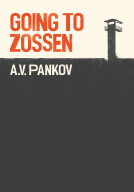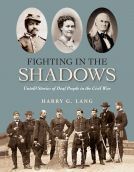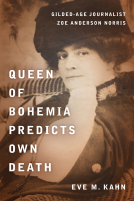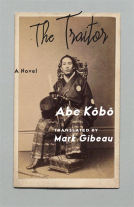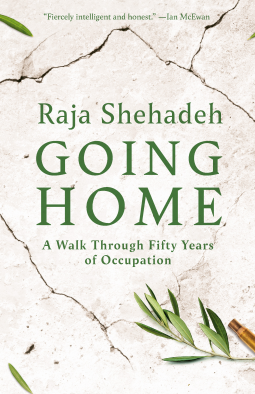
Going Home
A Walk Through Fifty Years of Occupation
by Raja Shehadeh
This title was previously available on NetGalley and is now archived.
Send NetGalley books directly to your Kindle or Kindle app
1
To read on a Kindle or Kindle app, please add kindle@netgalley.com as an approved email address to receive files in your Amazon account. Click here for step-by-step instructions.
2
Also find your Kindle email address within your Amazon account, and enter it here.
Pub Date Mar 10 2020 | Archive Date Nov 30 2023
Talking about this book? Use #GoingHome #NetGalley. More hashtag tips!
Description
In a dazzling mix of reportage, analysis, and memoir, the leading Palestinian writer of our time reflects on aging, failure, the occupation, and the changing face of Ramallah
"Few Palestinians have opened their minds and their hearts with such frankness."
—The New York Times
In Going Home, Raja Shehadeh, the Orwell Prize–winning author of Palestinian Walks, takes us on a series of journeys around his hometown of Ramallah. Set in a single day—the day that happens to be the fiftieth anniversary of Israel’s occupation of the West Bank—the book is a powerful and moving record and chronicle of the changing face of his city.
Here is a city whose green spaces—gardens and hills crowned with olive trees— have been replaced by tower blocks and concrete lots; where the Israeli occupation has further entrenched itself in every aspect of movement, from the roads that can and cannot be used to the bureaucratic barriers that prevent people leaving the West Bank. Here also is a city that is culturally shifting, where Islam is taking a more prominent role in people’s everyday and political lives and in the geography of the city.
A penetrating evocation of memory, pain, and place that is lightened by everyday joys such as delightful accounts of shared meals and gardening, Going Home is perhaps Raja Shehadeh’s most moving and painfully visceral addition to his series of personal histories of the occupation, confirming Rachel Kushner’s judgment that “Shehadeh is a buoy in a sea of bleakness.”
Available Editions
| EDITION | Other Format |
| ISBN | 9781620975770 |
| PRICE | $24.99 (USD) |
| PAGES | 224 |
Available on NetGalley
Average rating from 7 members
Featured Reviews
After reading Benjamin Disraeli’s book Tancred: The New Crusade this year, I was really happy when a newer book about Palestinian life crossed my desk: the memoir Going Home: A Walk Through Fifty Years of Occupation, by Raja Shehadeh. In this volume, the author takes a long walk around the West Bank city of Ramallah on the 50th anniversary of the occupation. The book is not in any way a political screed, although it is critical of both Israeli and Palestinian actions. Instead, the memoir is almost an elegy for the changed landscape that surrounds him—the geographic landscape of land and buildings, but also the more emotional landscape of changing society and culture.
Shehadeh knows his city intimately: its architecture (from homes to businesses), its gardens and wildlife, its people, and its history. Throughout his narrative are echoes of that past, grounded (so to speak) in the landscape he walks through. As he writes, “The city I grew up in has remained with me.” He passes a police station bombed out years ago, and a house where a peace proposal was hammered out. Those ghosts set the tone for the author’s walk. As I read, I kept thinking of William Faulkner’s famous sentence, “The past isn’t dead; it isn’t even past.” In Shehadeh’s text, the past invades the present with every step.
The tangible surroundings of Ramallah which the author traverses on his long walk are combined not only with memories of what was there before, but with a deep sense of loss. There is quite literally the loss of space, a countryside lost to settlements and to military zones. And with this loss of space comes the loss of homes, a central theme in this book. These losses are magnified by others: the loss of lives, the loss of human rights and dignity, and a loss of the sense of community that Shehadeh feels was essential to any real resistance to occupation.
As the author writes, “The city is no longer involved in a collective struggle against the occupation. Each of us is on our own. Part of this sense of individualism instead of collectivism comes with the Americanization he sees developing all around him. Instead of family-owned ice cream shops and barber shops and the like, he passes KFC and Pizza Hut. There are chain stores everywhere selling standardized culture and the idea of conspicuous consumption.
That sense of loss is not limited to the landscape around him. He struggles with his aging means, especially as he sees that breakdown of solidarity and community. He also sees resistance crumbling. Instead of true progressive political action, he sees too much petty resistance—things like a mosque playing the call to prayer loudly enough that it will annoy neighboring settlers. Or he sees actions that he feels are empty symbolism: the literal flag waving that he thinks does nothing.
Although flag waving implies nationalistic sentiment to me, Shehadeh is concerned that many Palestinians have turned away from a commitment to a Palestinian state. He argues that they have also turned away from a nationalist identity. He sees his neighbors--both young and old--turning instead to more fundamentalist religion, especially a politicized Islam. Shehadeh makes it clear that he thinks that move is simple desperation and that religious identity can never equal resistance.
But what makes this book feel personal and thoughtful is that the author’s response is often an emotional one. For example, seeing women in headscarves, he says, “makes me feel as though I no longer recognize where I am,” because it is a change from the Ramallah he loved in the past. He acknowledges that he is in no way opposed to the wearing of headscarves, but his sadness about the changes, especially as he realizes that he is coming closer to the end of his life, give this book its melancholy tone.
His goals as a younger man were different from what he sees now. “Our dream…was that we would help to create an egalitarian society where everyone would get the opportunity to shine,” regardless of religious belief or political position. Shehadeh wanted real reconciliation--within Palestine but also with Israelis. “We have failed to find a way of living together,” he writes, “and that’s the biggest tragedy. Now time is running out.”
One of the sections in this book that I find most interesting is the author’s analysis of shifts in the language used to describe death. As he writes, “No one can no call death by its name of it occurs in the course of struggle.” Instead, it must be labeled as martyrdom. He continues, “Death has been camouflaged and altered to become something else, something more palatable, not final but a noble elevated passage to heaven, in order to help those who lose loved ones endure their loss.” The author thinks that even those who use religious language in this way believe that in actuality, death is the final destination. Although I suspect many of those who use that linguistic construction would not agree with the author, the author writes these lines gently and sensitively.
Shehadeh’s travels through Ramallah leave him troubled by how much his world has changed, right as he feels his own time is slowly running out. Still, at the end of his walk, he arrives back at his home, full of art he’s carefully chosen and books he loves. His beloved wife is there, and the smells of traditional Palestinian cuisine waft from the kitchen. He takes his eat on their patio, under a lemon tree he has cultivated. Although he is fully aware of the precarious insecurity of his city, he knows that here in this place, he can still say, “I’m home.”
The author writes well and I like to understand the world from different perspectives so this is an important book considering the powder keg between the Palestinians and Israelis. Of course there will be a biased view when a memoir is written, but I wish he could have come across less bitter and harsh. It was a turn off for further reading. Taking a neutral stance or balancing the views from both sides then at the end exposing the strong bias would have been more engaging.
Readers who liked this book also liked:
Rachel Joyce
Historical Fiction, Literary Fiction, Women's Fiction
